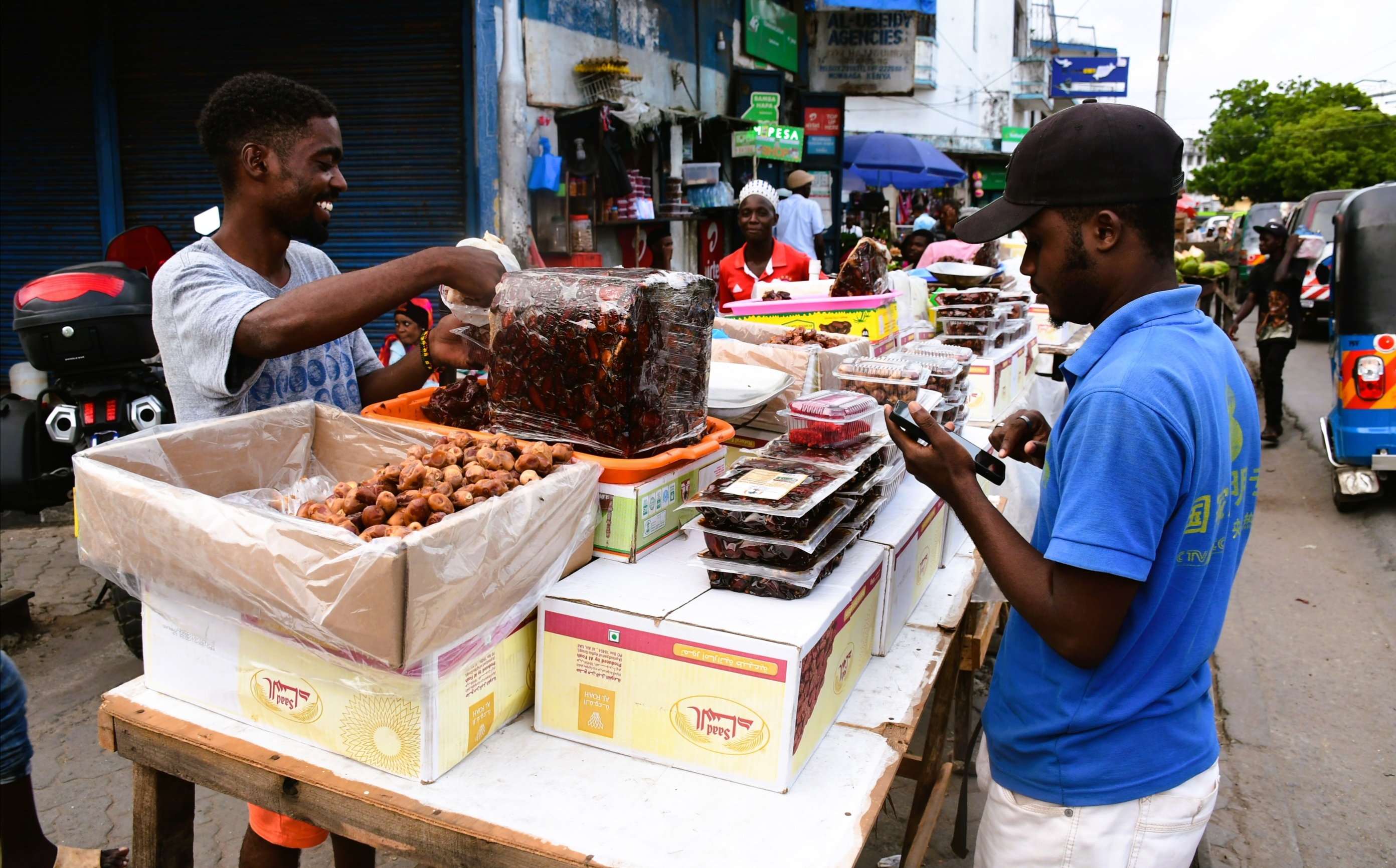Mombasa,
Sunday, March 31, 2024
KNA by Hussein Abdullahi
entire streets in the coastal city of Mombasa turn into open air Iftar (breaking the fast) buffets.
The streets are taken over by food vendors during the Ramadhan season and transformed into a vibrant food bazaar but faithfuls have to wait until dusk to partake in the mouthwatering myriad delicacies on display.
Whenever the holy month of Ramadhan arrives the traditional iftar market in the tourist resort city turns into a bustling street food hub.
When the sun sets Mombasa’s Muslims break their fast with iftar which is often a large community event.The food bazaars provide veritable delectable treats that satisfy even the most fervent appetites.
During the Ramadhan period almost all hotels and restaurants are closed as owners and patrons observe the fast and hotel owners usually take advantage of the fasting season to embark on renovation works.
Tourists and non-Muslims have nowhere to eat out and are forced to adopt the old adage If you go to Rome do as the Romans do as during the day Mombasa is virtually in a state of limbo partially due to the oppressive heat.In the streets of Mombasa markets are bustling with people as residents engage in cultural, religious, and social activities especially at night.
The holy month of Ramadhan which is currently underway is the ninth month of the Islamic calendar and is observed by Muslims worldwide as a month of fasting, devotion and reflection.Muslims are required to fast during the month of Ramadhan which entails abstaining from food, drink, sexual relations and displeasing speech and behaviour from dawn until dusk.
In Mombasa Ramadhan turns into a month-long festival as it is a time when street vendors across the city set up irresistible makeshift food stalls colloquially known as the ‘Taj Mahal’.
The open air eateries in the island flanking the streets come to live in the evenings and are popular with Muslims and non-Muslims alike.
As in previous years, residents from different parts of the city flock to the bustling makeshift diverse range of food stalls in the streets to buy varied delicious items for iftar.Muslims prefer to break their fast with dishes that will be gentle on their stomach following the long daylight hours without food and drinks.
The food bazaars not only make it convenient for Muslims observing the fast to buy food at economical prices but have attracted non-Muslims to buy delicacies even though they are not observing or breaking any religious fast.
Fasting during Ramadhan is one of the five pillars of Islam, along with the Muslim declaration of the faith, five daily prayers, giving Zakah (charity) and performing the Hajj pilgrimage to Mecca, Saudi Arabia.
Fasting is compulsory upon every Muslim male or female but exemptions include children under the age of puberty, insane people, men and women who are too old to undertake the obligation of fasting.Others include sick people whose health is likely to be severely affected by the observance of fast, pregnant and breast-feeding women and women in the period of menstruation.
Throughout the month, people throng the many crowded Ramadhan food bazaars specially set up for the faithful to buy Swahili cuisine to break the fast.
The mushrooming street food bazaars during the fasting month have become a sort of an annual tourist phenomenon.Mombasa’s vibrant street food bazaar showcases an array of delectable treats that tantalizes the taste buds.
Some of the Swahili delicacies sold in the open include dates, pancakes, Mkate wa sinia (flat bread), kebab, Shewerma, samosas, mahamri (Swahili doughnut), Kaimati (sweet dumplings) and Viazi karai (fried potatoes), Vibibi (rice and coconut pancake), Bhajia (delectable Swahili fritters) among other array of delicacies.
Swahili dishes are a diverse mix of Indian, Arab and Portuguese food and a spot check by KNA on the open air eateries show people arriving as early as 4 pm to buy their favorite delicacies to be used to break the fast at around 6.30 pm.
Mombasa’s centuries-long lengthy history of migration and trade has influenced its cuisine.The rise in popularity of Ramadhan bazaars may be directly attributed to the wide range of food sold and the opportunities afforded to the many stallholders.
Regarding the sales of iftar items, traders complained that it has become difficult to buy ingredients for iftar this year due to the increase in commodity prices.
Aboud Athman, a food vendor says prices of various products have gone up slightly forcing them to compromise with the portions of some other items.
“It is difficult to cope with the soaring prices of essential items while preparing culinary wonders of Ramadhan food and it was not possible for us to maintain the previous prices for many items this year,” he lamented.
Athman says the government should take measures to drive down the prices of staple foods that are worsening the cost of living crisis.
He says each Ramadhan season Mombasa comes to life with street food festivals highlighting its heritage shaped by centuries of interaction with visitors from Persia, Arabia, China, India and Europe in a carnival atmosphere.
“The various food items on sale are genuinely home-cooked and freshly made to be sold only in the evenings for consumers to buy as a takeaway to break the fast,” says Ali Mahmoud, another street food vendor.
Mahmoud, a veteran street food vendor says the delicacies are homemade and follows authentic recipes, something that are rarely found in ordinary restaurants.
He says apart from being sites to buy traditional Ramadhan foods the street food bazaar has become lively gathering places for food exploration and socializing as they offer a veritable wonderland of flavours and scents waiting to be experienced for those who love street cuisine.
Mombasa Governor Abdulswamad Shariff Nassir has been strolling the streets in the evenings during this auspicious month of Ramadhan interacting with the people and breaking fast with the Muslim faithful.
Governor Nassir says he is delighted in sharing the moment with fellow Muslim faithful in partaking in the evening street meal to break the fast with other worshippers.He noted that the evening street visits were meant to demonstrate the need for leaders to show responsibility and empathy for the people around them.
Nassir says Ramadhan is a month where Muslims from all walks of life come together and make immense sacrifices whilst also carrying out charitable acts such as generosity, empathy and community support.





